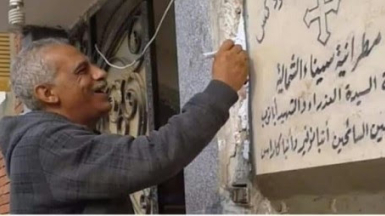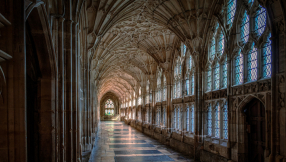
A Coptic Christian abducted by the Islamic State last November has been executed.
Nabil Habashi Salama, 62, was executed on 18 April, Christian Solidarity Worldwide (CSW) confirmed, with footage of his murder being paraded on IS media platforms.
His son Peter told the Egyptian newspaper Watani that it looked like his father had been tortured by the militants before being killed because his teeth appeared to be broken.
"We were forced to close our businesses and leave our homes to another city and we continue to receive threats," he added.
Mr Salama was a successful businessman, owning several jewellery and mobile phone businesses in Bir Al-Abed, Northern Sinai.
He was also a committed Christian who built the town's only church, Saint Mary & Anba Karas & St Abanob Church.
He was abducted from the town by IS in broad daylight, with the terrorists demanding a ransom of 5 million Egyptian pounds (around £230,000) for his release.
CSW sources said Mr Salama was killed as a "warning" to Egypt's Christian community that they will be next if they remain loyal to the Egyptian state and army.
CSW's Founder President Mervyn Thomas said: "We extend our deepest condolences to Mr Salama's family and the Coptic community in Egypt."













